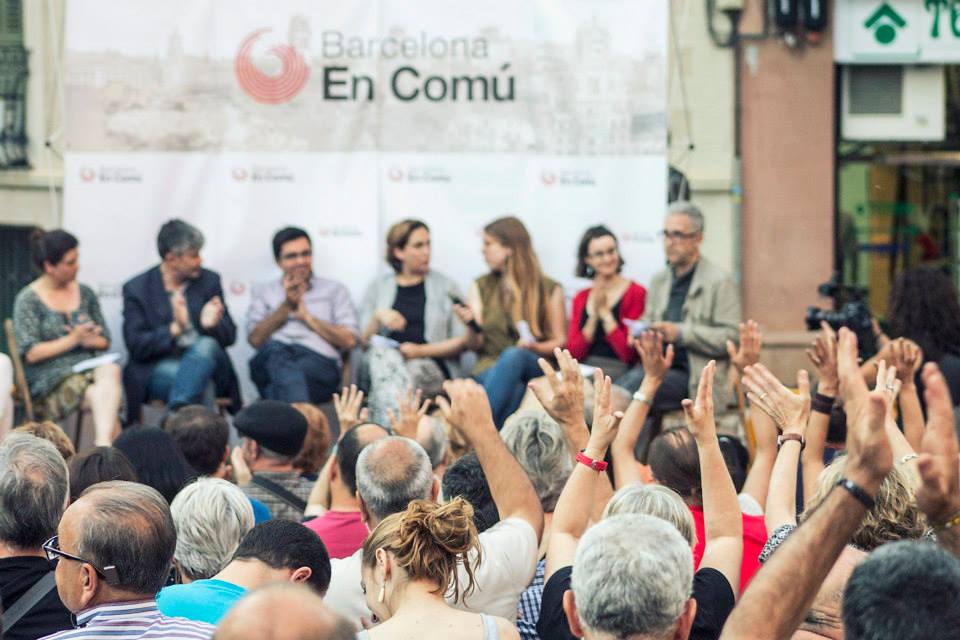Podcast: Play in new window | Download
Subscribe: Apple Podcasts | Android | Email | Google Podcasts | RSS | More
This week, the focus is on experience of left parties and organizations at the municipal level. Although the left has still exercised only limited political power in many places since the financial crisis, some cities have seen left projects come to power or build new institutions in interesting ways. My two guests shed light on two examples of municipal socialism in Europe and North America.
First, Yusef Quadura describes the experience of Barcelona en Comu. In 2015, this new left coalition took control of the municipal government in Barcelona. Led by the housing activist Ada Colau, the party did what Podemos couldn’t do nationally and garnered enough support to govern with the intention of implementing a left program, at least at the municipal level. To get a sense of the plans, accomplishments and challenges faced by Barcelona en Comu just over a year into its mandate, I spoke with Yusef, a member Barcelona en Comu’s international group. Yusuf is also part of the party’s co-ordinating committee in the Gracia district, where we met and talked over coffee (excuse the ambient noise), and a substitute counsellor for the Gracia district council.
My second guest is Kali Akuno, a leader within Cooperation Jackson, a municipal organization far beyond just a political party in Jackson, Mississippi. Although the group elected the radical Chokwe Lumumba as mayor of Jackson in 2014 (before he died tragically only a year into his term), electoral politics is only a small, supporting part of Cooperation Jackson’s mission. Kali describes what this network of worker-run cooperatives, party and movement congealed into one is up to and some of challenges it faces.
